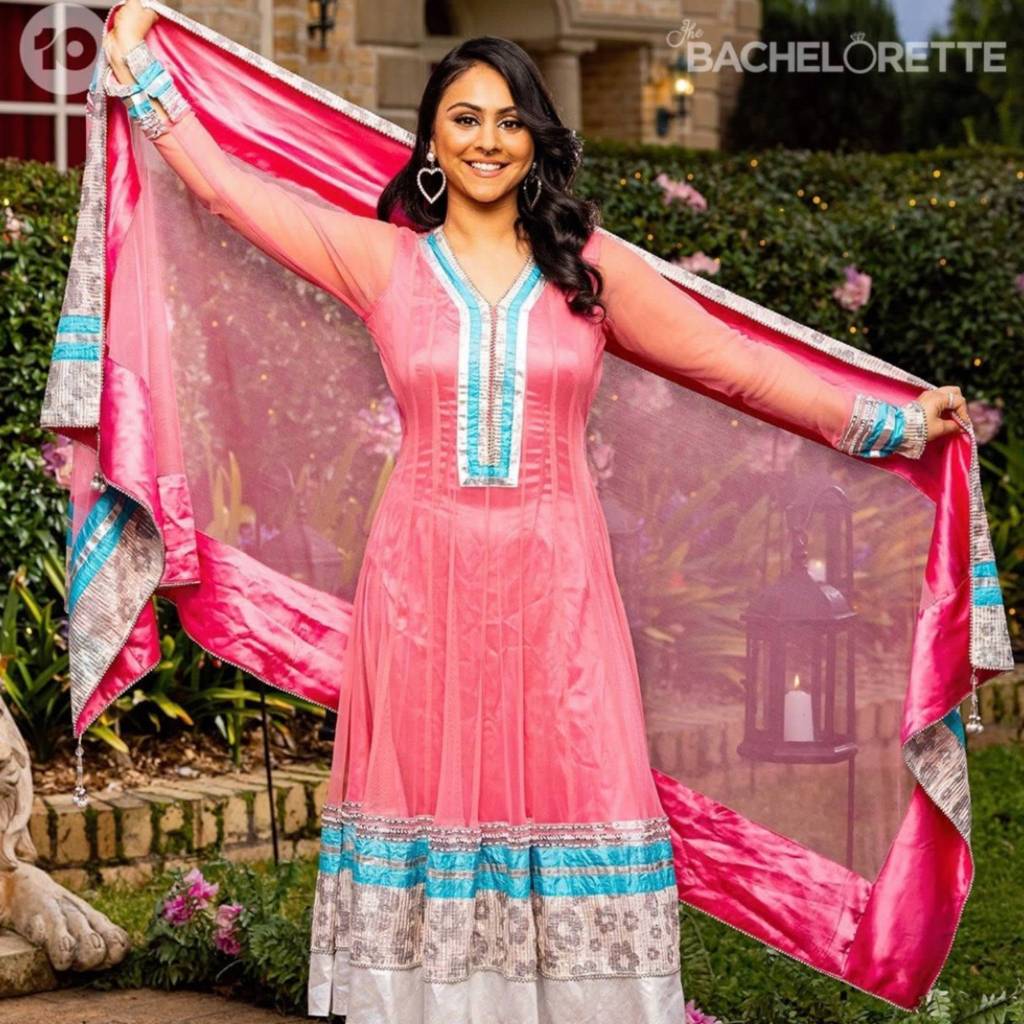This year, The Bachelorette is making history in more ways than one. Brooke Blurton is the first Indigenous and bisexual Bachelorette, and in a move that has never been done before, the contestants in the mansion are a mix of men and women.
The decision has been welcomed by many, marking a huge moment not only for the franchise but also Australian TV. It’s 2021, but unfortunately, Australian television still has a very long way to go when it comes to diversity on screen. But while The Bachelorette has made a leap, last night, Ritu, the only South Asian contestant on the show was booted.
The 25-year-old was set on finding love, but her journey was cut short after Brooke chose to not present her with a rose. While she shares no ill will towards anyone, knowing that sometimes the spark just isn’t there, she does believe Australian television has a long way to go when it comes to queer POC being represented on screen.
“On normal television, I don’t really see representation of queer South Asian people. It’s such a rarity in television, and needs a bit more public normalisation because it actually exists,” she told POPSUGAR Australia. “I’ve met a lot of Indian people who are queer but are very much boxed in.”
Indians are the third-largest migrant group in Australia, yet when we watch network television, you would think we don’t exist. This erasure of different ethnic groups is prevalent and is felt throughout various communities around the country.
Which is why when the filmmaker chose to wear a shalwar kameez (a traditional Pakistani/Indian dress), Twitter went into a frenzy. It was so refreshing to see a woman be so unapologetically herself.
“It was very much my decision to wear the shalwar kameez that I wore, because I wanted to represent that part of myself. I chose to come up with a red carpet idea where I had henna on my hands. If I’m going to represent my community, I was going to do it right.”
But while The Bachelorette is taking a step in the right direction, according to the Melbourne local, there is a lot of work to be done.
“Even in The Bachelorette environment, a lot of things I wanted to discuss about being a South Asian woman and what coming out was like, I didn’t feel like I got to the point where I could have been frank about it,” she said.
Openly queer South Asians are a rarity, simply because the notion of not being a heterosexual is frowned upon, and while Ritu’s family has always remained supportive since day one, she understands that so many young people don’t have someone who will stand by their side after coming out.
“It’s why I think representation is so important, because younger people will start to talk about it earlier. The primary stress is on the person coming out. You’re carrying it for years and years, it’s not healthy,” she said. “When I was younger, in high school, I wasn’t trying to come out. I was in a relationship with a woman and people found out. I didn’t casually walk out of the closet, I was pushed out accidentally.”
Her time on the show has come to an end, but Ritu’s experiences will forever remain with her, saying before her stint on the show, she never thought about the lack of diversity on screen. But now, she’s so much more passionate about it.
“I didn’t even know I cared that much about queer and South Asian rights and having a voice. I’m a writer and even this experience has triggered me into thinking I should write about this. Now I have new emotions about it.”

